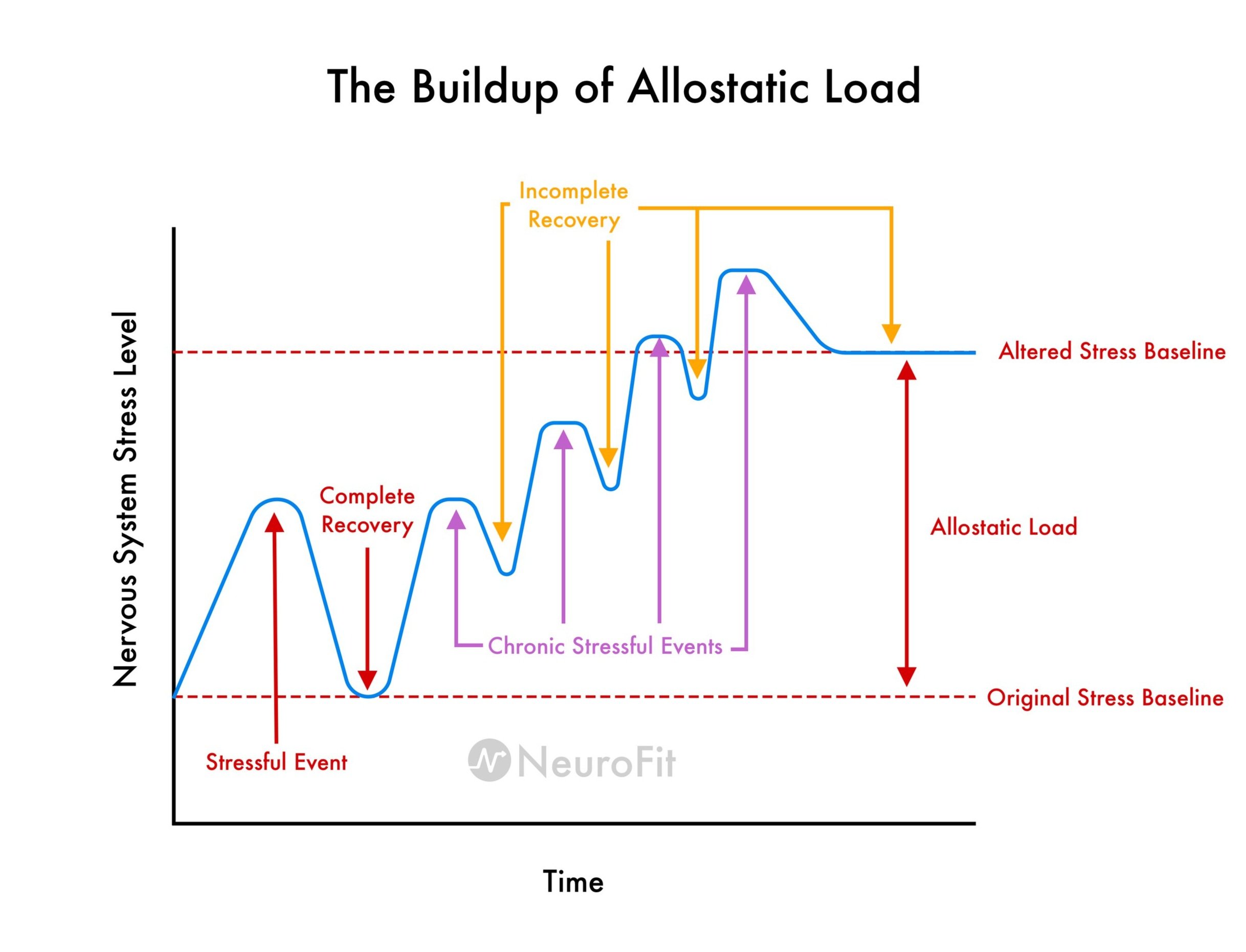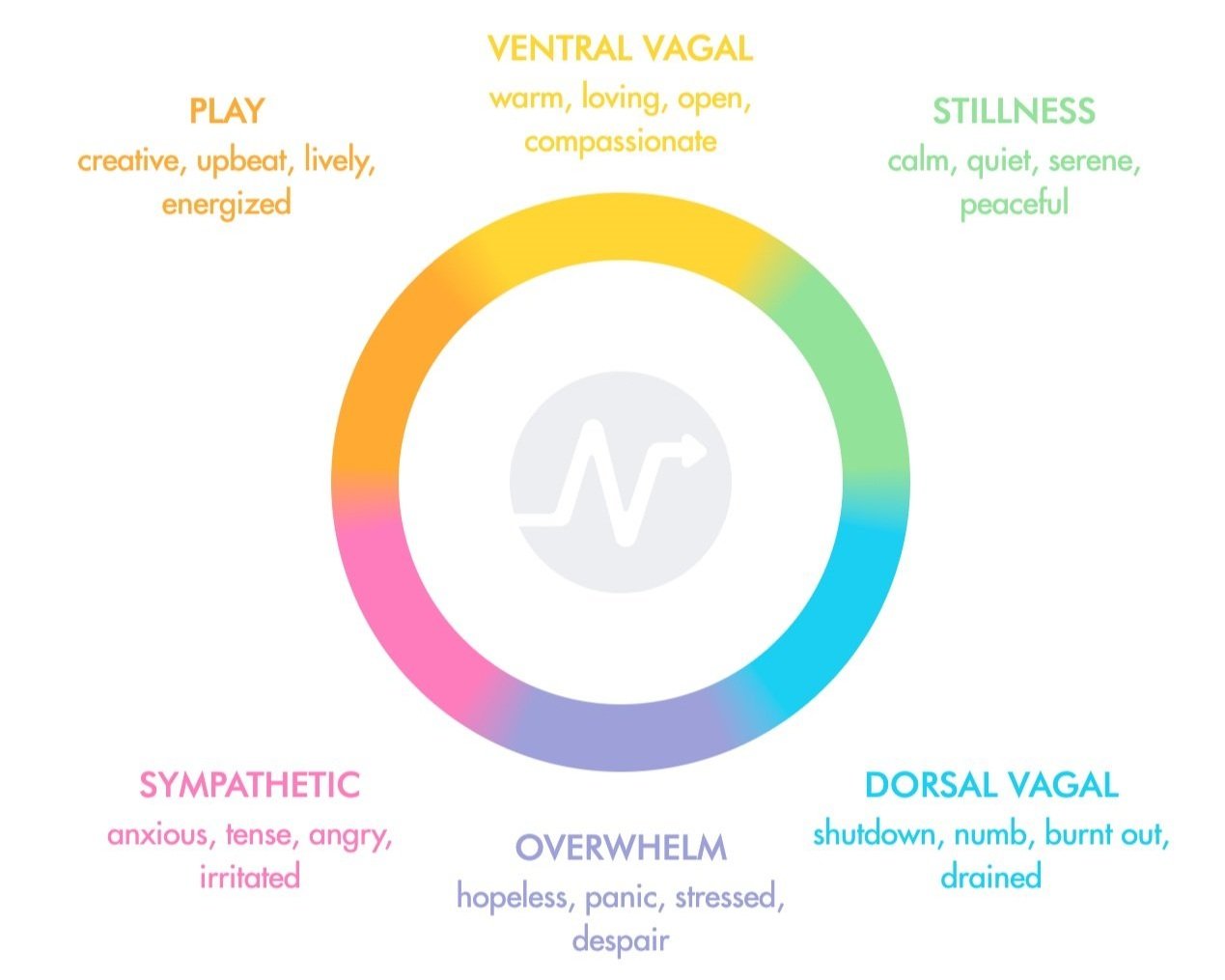6 Signs You have a Dysregulated Nervous System
The nervous system is responsible for coordinating the body’s response to internal and external stimuli. It regulates many important functions, including heart rate, blood pressure, respiration, digestion, and temperature. When the nervous system is functioning properly, the body is able to maintain homeostasis.
However, trauma, chronic stress, and other factors can lead to a dysregulated nervous system and the body may experience a variety of symptoms.
What is a Dysregulated Nervous System?
Before exploring the signs that you may have a dysregulated nervous system, it would help to understand what this means. Simply put, a dysregulated nervous system is one that is out of balance.
This imbalance often results from continual exposure to chronic stress and results in the build of allostatic load. When this occurs, our stress baseline is altered above our usual baseline.
When this happens, the body spends more time in one of three dysregulated nervous system states:
Sympathetic “fight or flight” State;
Overwhelm State; or
Dorsal Vagal “shutdown” State.
Spending a prolonged period in one of these 3 states of dysregulation leads to a host of physical and psychological problems. Fortunately, somatic exercises can help to restore balance to the nervous system, improving physical and mental health.
6 Signs that Indicate You May Have a Dysregulated Nervous System
1 - Anxiety and/or Depression
Anxiety and depression are two of the most common mental health disorders in the United States. They are often caused by a dysregulated nervous system. People with anxiety may experience a racing heart, sweating, and difficulty breathing. They may also feel like they are constantly on edge. People with depression may feel hopeless, helpless, and fatigue. They may also have difficulty concentrating and making decisions.
2 - Persistent Fatigue
One of the most common signs of a dysregulated nervous system is chronic fatigue. Feeling perpetually tired, no matter how much you rest or sleep, can indicate an imbalance in your nervous system.
3 - Unexplained Bodily Aches + Chronic Pain
Bodily aches unaccompanied by a known cause, like an injury, are usually a result of prolonged muscle tension which increases our sensitivity to pain. This is a standard response of the body when the nervous system is in a state of constant alertness. The pain may be worse at certain times of the day, such as in the morning or at night.
4 - Difficulty in Concentrating or “Brain Fog”
A dysregulated nervous system can affect your cognitive function, making it difficult for you to concentrate on tasks. This symptom is linked to the constant mental fatigue that is a result of the unending sense of alertness.
5 - Disturbed Sleep Patterns
One of the clearest signs of a dysregulated nervous system is disturbed sleep patterns. This can include insomnia, night-time anxiety, or frequent waking during the night. Restful sleep is essential for overall wellbeing, and a disrupted sleep cycle can have serious implications on daily life.
6 - Unpredictable Emotional Responses
People with a dysregulated nervous system frequently experience unpredictable emotional responses. They can be overly sensitive, anxious, or experience sudden bouts of anger. This is because a persistently alert nervous system keeps their emotions on a high-wire.
You may also experience the following:
Apathy
Hopelessness
Feeling powerless or trapped in your circumstances
Lacking in motivation
Tearful and crying often
7 - Digestive Problems
When the stress response is activated, digestion is suppressed so the body can reroute its resources to trigger fight or flight. The central nervous system shuts down digestion by slowing contractions of digestive muscles and decreasing secretions for digestion.
The stress response inhibits the digestive system while the relaxation response activates it. That is why the Ventral Vagal state of the nervous system is often called “rest and digest. Common symptoms of digestive issues can include:
Irritable bowel syndrome (IBS)
Bloating
Butterflies
Constipation
Cramps
Diarrhea
Inflammation
The gut is the highest area of nerves outside of the brain and is sometimes called the "second brain”. This is why gut issues are so commonly caused by chronic stress and nervous system dysregulation.
The Role of Somatic Exercises in Nervous System Regulation
With all the complications that a dysregulated nervous system can cause, understanding how to regulate it is crucial. This is where somatic exercises come in.
Somatic exercises involve gentle, controlled movements that help to develop body awareness, alleviate chronic stress, and restore balance to the nervous system. They provide an opportunity for the body to 'reset' itself, unlinking the stress response and calming the body.
Next Steps - Start Your NEUROFIT Membership
Start your 6-week nervous system reset with the NEUROFIT App.



